How to Store Essential Oils for Maximum Freshness
How to Store Essential Oils is very important for people who like using them for aromatherapy or in their daily routines. Proper storage maintains the oils' potency and ensures their safety for use. In this guide, we will delve into how to properly store essential oils, display them creatively, and why it's necessary. We'll also explore the shelf life of essential oils, common mistakes to avoid, and tips for prolonging their freshness.
How to Properly Store Essential Oils
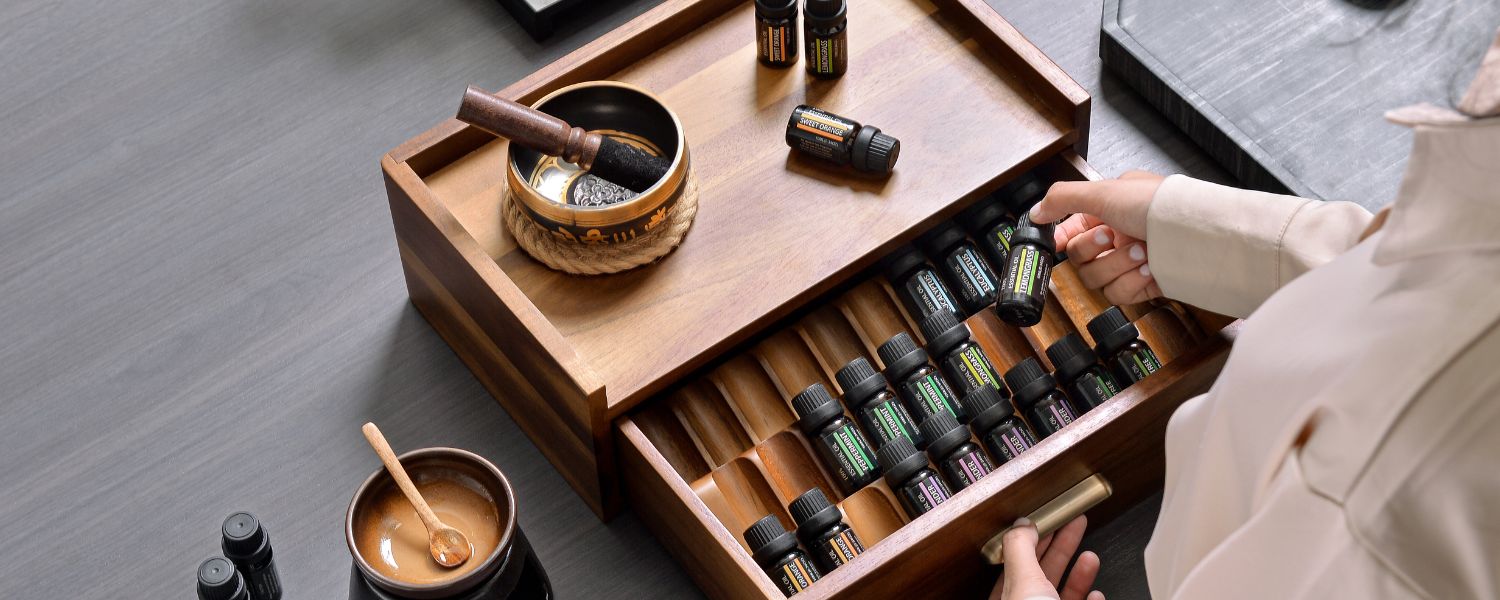
Properly storing essential oils is crucial to preserving their potency and maximizing their shelf life. Whether you're an avid aromatherapy enthusiast or an occasional user, following the right storage practices can ensure that your oils remain fresh and effective for longer. Here's how to do it:
1. Keep them away from direct sunlight
When essential oils are exposed to sunlight, they can lose their healing abilities and become less effective. Store your oils in a dark, cool place away from windows or other light sources.
2. Use dark glass bottles
Choose dark-colored glass bottles, like amber or cobalt blue, to keep your oils safe from light. This helps to maintain their quality over time.
3. Maintain a stable temperature
Fluctuations in temperature can affect the chemical composition of essential oils. Store them in a cool, dark place with consistent temperatures, away from heat sources like radiators or stoves.
4. Choose the proper containers
Invest in high-quality essential oil storage containers designed to keep oils fresh. Look for containers made of glass or metal, as these materials are less likely to react with the oils.
5. Keep lids tightly closed
Always ensure that the lids of your essential oil bottles are tightly closed when not in use. This helps to prevent air from entering the bottles, which can cause oxidation and reduce the oils' effectiveness.
6. Avoid storing oils in plastic
Plastic containers can interact with essential oils, leading to contamination and degradation. Stick to glass or metal containers for optimal storage.
How to Display Essential Oils
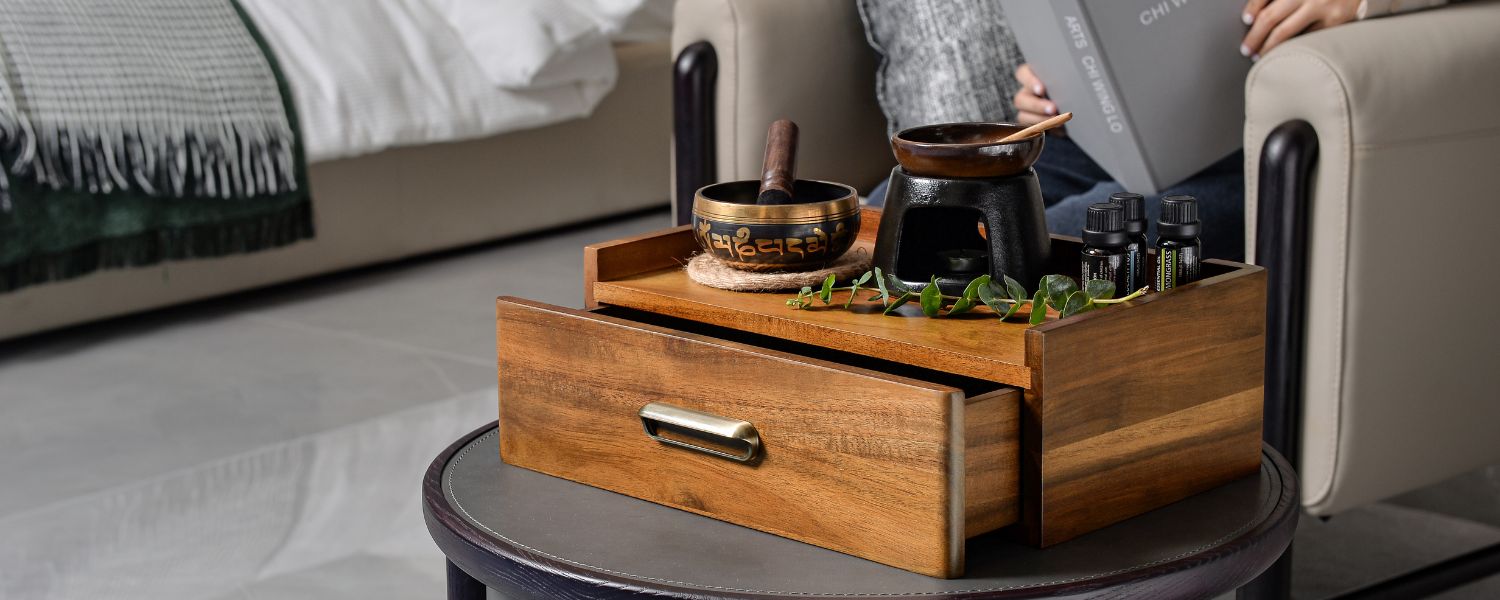
Displaying essential oils can be both functional and aesthetically pleasing. Here are some creative ways to showcase your collection:
1. Phone holder for nightstand
Utilize a phone holder for nightstand with multiple slots to neatly display your essential oil bottles on your bedside table. This keeps them organized and ensures they're within reach for nighttime relaxation routines. The slots in the phone holder can securely hold the bottles upright, preventing them from tipping over and spilling.
2. Custom shelving
Install shelves or racks specifically designed for essential oil storage. This allows you to arrange your oils according to size or use, making it convenient to find the ones you need. Custom shelving can be made to fit perfectly in your space, giving you more storage room and matching your decor.
3. Decorative trays
Place essential oil bottles on decorative trays or dishes to create a visually appealing display. Choose trays with compartments or dividers to keep the bottles organized and stop them from moving around. Decorative trays can be placed on countertops, shelves, or tables to showcase your collection while adding a touch of style to your space.
4. Wall-mounted racks
Install shelves to store and display your essential oils vertically. This saves space and makes it easy to see all your oils at a glance. Wall-mounted racks can be installed in bathrooms, kitchens, or bedrooms, providing convenient access to your favorite oils wherever you need them.
The Importance Of Properly Storing Essential Oils
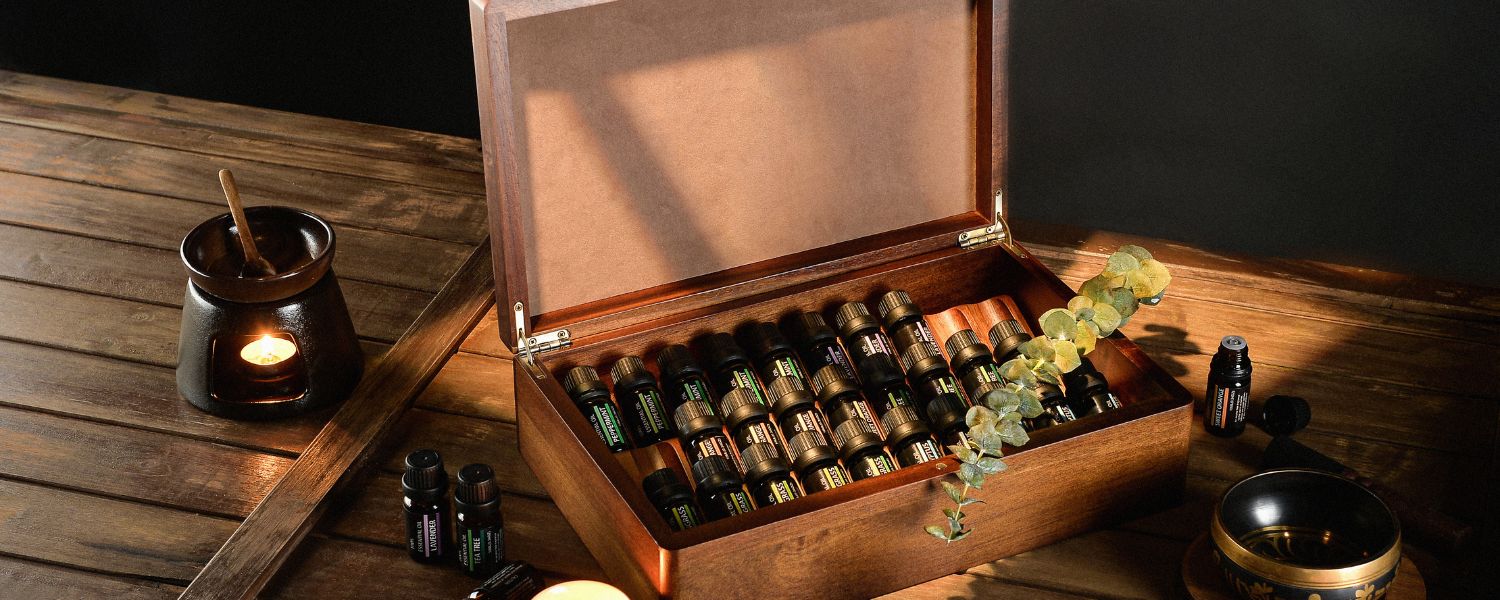
Properly storing essential oils is crucial to maintaining their potency and effectiveness over time. Essential oils are super strong extracts from plants. Each one has special powers that can help you feel better. However, these properties can degrade when exposed to unfavorable conditions. Therefore, understanding the significance of proper storage is essential for anyone who uses essential oils regularly.
Shelf life is a significant concern when it comes to essential oils. While they do not technically expire like food, they can lose effectiveness over time. Factors like exposure to light, air, and heat can accelerate the degradation process. This underscores the importance of storing essential oils correctly to prolong their shelf life and maximize their benefits.
When essential oils are not stored properly, they can undergo chemical changes that alter their composition. This can result in a loss of aroma, therapeutic properties, and even safety concerns. Oxidation, in particular, is a common issue when essential oils are exposed to air. As oxygen interacts with the compounds in the oils, it can lead to a decline in quality and efficacy.
Another critical aspect of proper storage is maintaining the oils' purity. Essential oils are susceptible to contamination from external sources such as moisture, dust, and microorganisms. Storing them in clean, airtight containers helps prevent contamination and ensures the oils remain safe.
How long essential oils last can change based on things like the kind of oil, how you store them, and how much you open them. While some oils may remain potent for several years, others may degrade more quickly. By storing them correctly, you can extend their shelf life and preserve their therapeutic benefits for as long as possible.
Furthermore, the financial aspect cannot be overlooked. Essential oils can be expensive, and improper storage can lead to waste as oils lose their potency and become unusable. Therefore, investing in proper storage solutions is not only beneficial for your health but also for your wallet in the long run.
Do essential oils expire?
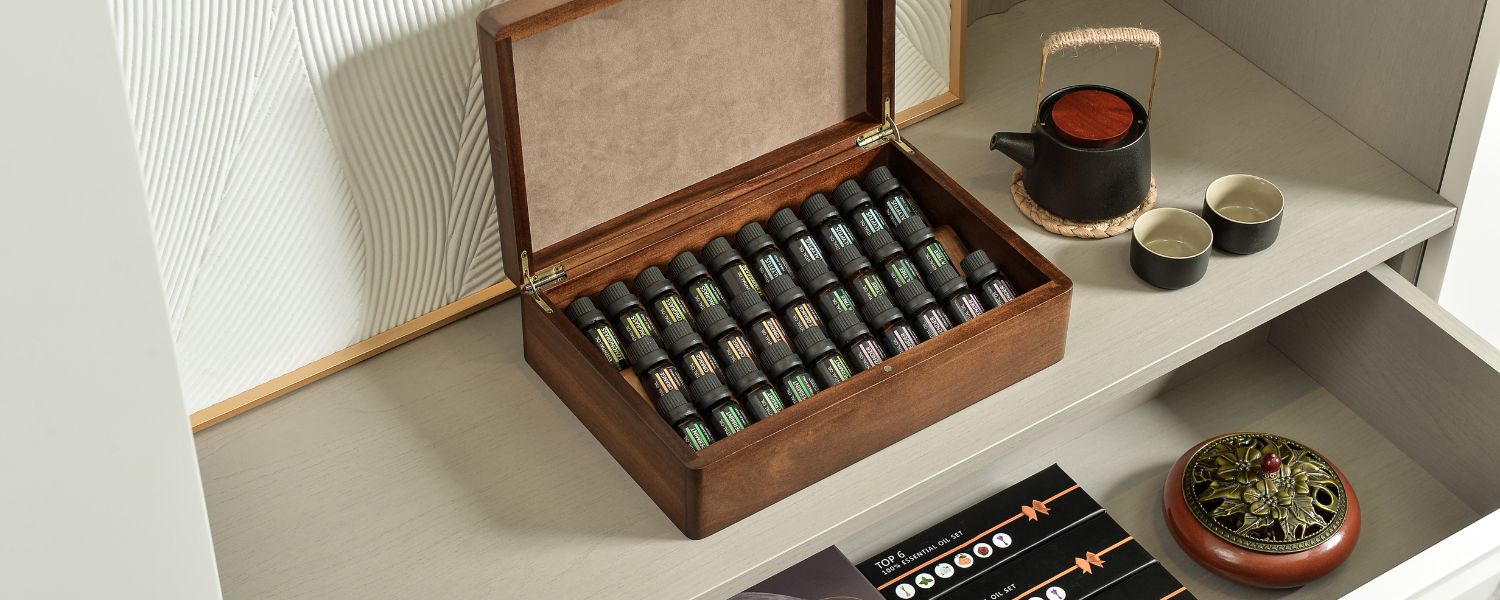
Essential oils do not expire like food, but they can lose their potency over time. The length of time essential oils stay good can change based on things like what kind of oil it is, how you store it, and how much you use it. While some oils may last several years, others may lose their effectiveness within a few months. It's essential to check for any changes in scent or appearance, as this can indicate that the oil has gone rancid.
Some Places Where Essential Oils Should Not Be Stored
To maintain their freshness, avoid storing essential oils in the following places:
1. Bathrooms
The fluctuating humidity levels in bathrooms can cause essential oils to degrade quickly. Choose a dry, excellent location away from showers and sinks.
2. Kitchen cabinets
While convenient, storing essential oils in kitchen cabinets exposes them to heat and light, which can accelerate degradation.
3. Near heat sources
Make sure to keep your essential oils away from heaters, stoves, or direct sunlight. Too much heat can make them lose their healing powers.
Ideal Storage Conditions
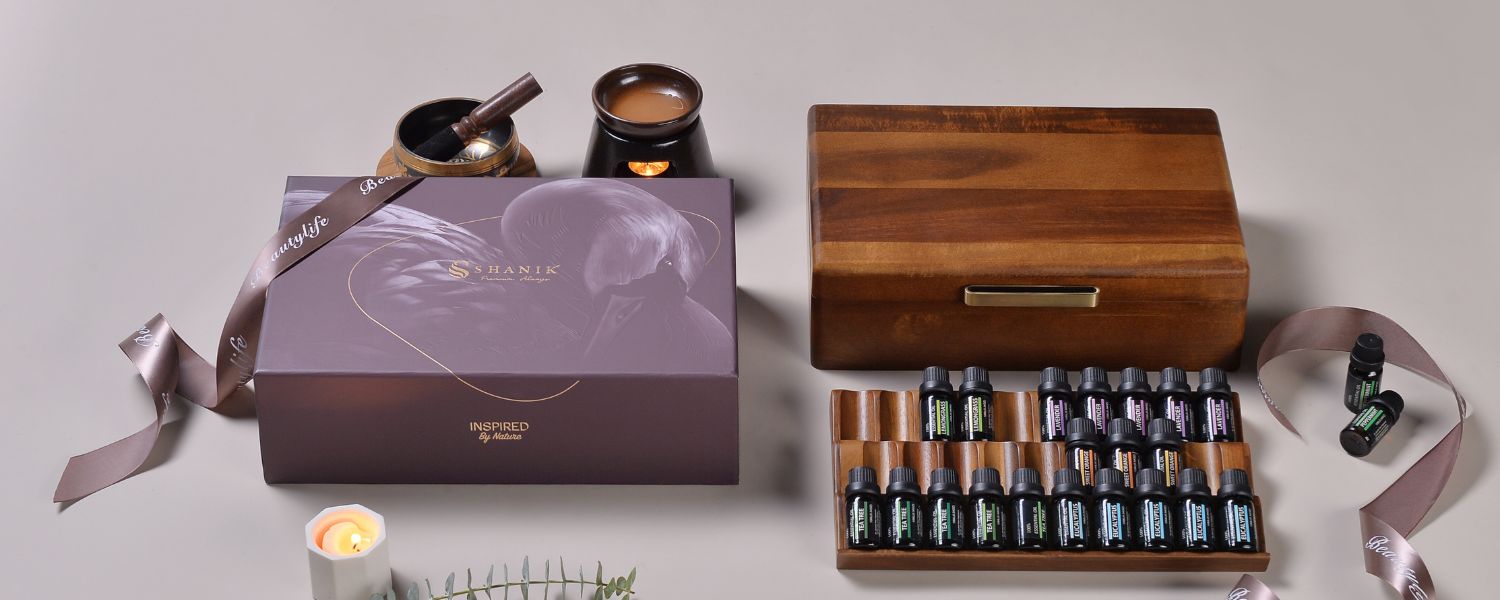
To maintain the freshness and potency of essential oils, it's crucial to store them under the right conditions. Here are the ideal storage conditions for preserving the quality of your essential oils:
1. Temperature
Aim to store essential oils in a relaxed environment with stable temperatures. Fluctuations in temperature can cause the oils to degrade quickly. The best temperature to store essential oils is between 50 and 70 degree F (10 and 21 degrees C). Don't keep them where it's very hot or very cold, like near heaters or air conditioners.
2. Light
Being in sunlight can make essential oils break down faster, which means they might not work as well for making you feel better. Store oils in dark glass bottles, such as amber or cobalt blue, to protect oils from light damage. Keep the bottles in a dark cabinet or drawer away from direct sunlight.
3. Air
Oxygen can cause essential oils to oxidize, leading to a decrease in potency and quality. Make sure to close the bottles tightly when you're not using them. This stops air from getting in and makes the oils go bad. Avoid leaving bottles open for extended periods, and consider transferring oils to smaller containers to minimize air exposure.
4. Humidity
High humidity levels promote the growth of mold and bacteria in essential oils, compromising their quality and safety. Store essential oils in a dry environment away from areas with high humidity, such as bathrooms or kitchens. Keep bottles tightly sealed to prevent moisture from entering and contaminating the oils.
By following these ideal storage conditions, you can prolong the shelf life of essential oils and make sure that they remain fresh and potent for extended periods. Proper storage is essential for maximizing the therapeutic effect of essential oils and maintaining their quality over time.
Tips for Prolonging Freshness
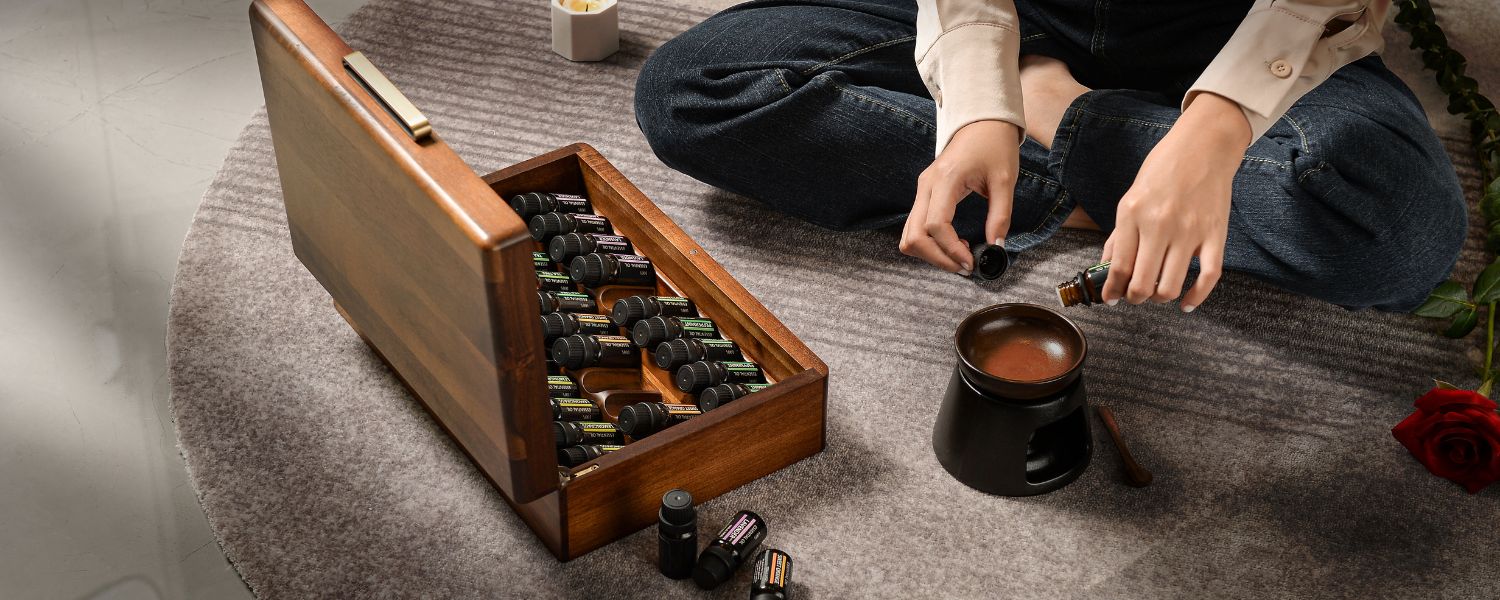
1. Use within one to two years
While essential oils can last several years, they are most potent within the first one to two years of purchase. Rotate your collection regularly to ensure you're using oils at their peak freshness.
2. Store smaller quantities
Transfer large bottles of essential oils into smaller containers to minimize air exposure and preserve freshness.
3. Keep lids tightly closed
Always close the bottles tightly after you use them so that oxygen can't get in and make the oils go bad.
4. Avoid contamination
Use clean droppers or pipettes to dispense essential oils and avoid contaminating the bottle with fingers or other substances.
5. Utilize creative storage solutions
Consider using unconventional storage methods such as a turntable cheese board to organize and display your essential oil collection. This adds a decorative touch to your space and allows easy access to different oils while keeping them fresh.
Conclusion
Properly storing essential oils is essential for maintaining their potency and ensuring they remain safe. By following the steps in this guide, you can make your essential oils last longer and keep benefiting from their healing effects. Remember to store them in a cool, dark place, keep bottles tightly sealed, and avoid exposure to air and sunlight. Your essential oil collection can remain fresh and effective for years with the right storage conditions and care.
Shanik Home offers a range of products and resources to enhance home living experiences. From kitchen tools to home organization solutions, Shanik Home aims to simplify daily routines and elevate living spaces. Whether it's innovative gadgets for cooking, stylish décor pieces, or practical storage solutions, Shanik Home provides products designed to streamline tasks and enhance functionality. With a focus on quality, convenience, and aesthetics, Shanik Home strives to empower individuals to create a more comfortable and enjoyable home environment.


